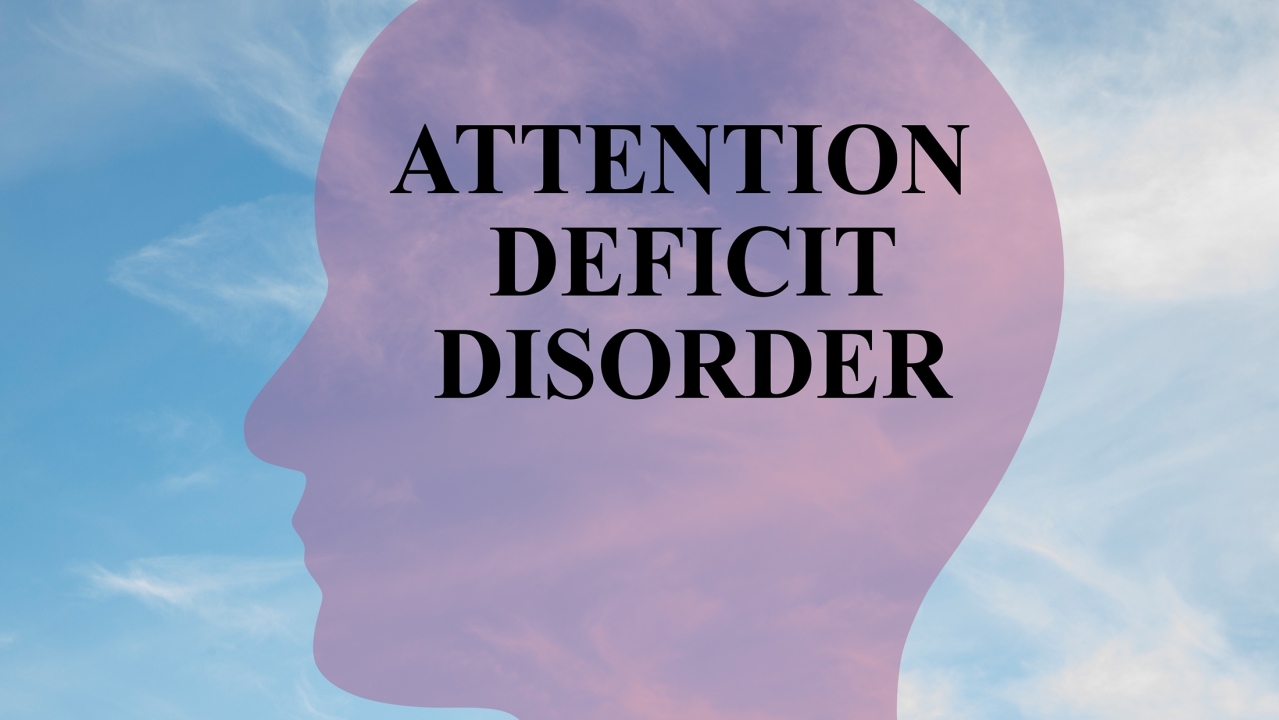It is characterized by symptoms such as inattention, hyperactivity, and impulsivity. Individuals with ADHD may find it difficult to focus on tasks, follow instructions, and organize their thoughts. It is believed to be caused by genetic and environmental factors, in terms of etiology the emphasis is mainly on the cognitive theories highlighting the role of executive functioning (Graziano, & Garcia, 2016).
Executive functions/ Cognitive background
Executive functions (EF) represent the set of abilities that enable us to represent our aims, plan, organize and control psychological operations to achieve goals. It is responsible for monitoring the environment and changing behavior flexibly in a situation where some relevant environmental impact changes. Executive functions are affected by both cognitive and psychological processes. Most researchers explain the phenomenon of ADHD with the atypical functioning of the executive functions localized in the frontal lobe. There are also contradictions as to which aspect of the executive functions is involved in the disorder. Malformation of the frontostriatal system in attention deficit hyperactivity disorder (ADHD) is a proven factor, however, it is still questionable whether the entire disorder can be explained by an inadequate working of the executive functions (Graziano & Garcia, 2016; Nakao et al., 2011).
Impairments in ADHD
ADHD causes disturbances in behavior, social competence, and school performance (Sciutto, Terjesen, & Frank, 2000). Studies have shown that ADHD is linked to higher dropout rates from school (Gnanavel et al., 2019; Barkley et al., 1990). In a reviewed study the rate of comorbidity between ADHD and learning disabilities (LD) was from 31% to 45% (Becker et al., 2020). A learning disability in writing, reading, spelling or in math can make performing in school really difficult (Mayes, Calhhoun & Crowell, 2000). With the occurrence of both emotion dysregulation and ADHD the number of suspensions of school, negative social consequences are likely to rise. Studies demonstrated the connection between learning and planning difficulties and ADHD symptoms in the inattentive type (Gnanavel et al., 2019). With age-related problems regarding the EFs are described to be more pronounced, in adolescence the control and help of parents and external sources are starting to diminish compared with childhood (Barkley et al., 2004), and the responsibilities with school are starting to grow, which increases the need for EFs, particularly planning skills. Adolescents are expected to manage to turn in assignments, attend classes, and manage their own time (Boyer, Geurts & Oord, 2018; Evans et al., 2009). Boyer et al. studied impairments on daily life planning skills in adolescents with ADHD (2018), and they found that adolescents with ADHD (both subtypes) showed planning deficits, which contrasted with other previous studies, but there was a difference in planning between the subtypes. Adolescents with the inattentive subtype needed more time to plan adequately. Their study also provides evidence that only a proportion of children (about half to one third) with ADHD have EF deficits (Boyer, Geurts & Oord, 2018; Willcutt et al., 2005). For young people who have pre-existing mental health issues and neurodevelopmental risk, such as ADHD, remote learning is particularly challenging. In comparison to their classmates without the disorder, they also exhibit decreased academic motivation (Smith et al., 2020) as well as weaker planning and time management skills (Sibley, Altszuler, Morrow & Merrill, 2014). The review by Lambez, Harwood-Gross, Golumbic & Rassovsky examined the most prominent behavioral and cognitive interventions for ADHD and their effect on cognitive symptomatology (2020), and they found physical exercise, CBT, neuro- and biofeedback and inhibitory control training to be the most efficient to effective in targeting and reducing cognitive symptoms of ADHD.
Study support for adolescents with ADHD
Study support not only helps prevent early drop-out and overcome learning difficulties but also helps adolescents to integrate into an academic community where they can study together, make friends and socialize. Studying independently is a must in higher education especially with modern technology, online lectures, and remote learning. Becker et al. studied remote learning difficulties. Teenagers with ADHD reported fewer routines and farther-reaching learning challenges than teenagers without ADHD. Only in the case of adolescents with ADHD were learning difficulties associated with fewer routines, higher negative affect, and harder time focusing due to the COVID-19 pandemic. The ADHD status has also been found as a mediator between adolescent difficulty concentrating because of COVID-19 and remote learning difficulties (Becker et al., 2020). A great example of study support groups for individuals with ADHD are the support groups provided by the University of Utrecht. The student psychologists of Utrecht University offer the possibility to participate in a study support group for students with a diagnosis of ADHD/ADD. The groups meet weekly, where students are asked to make a planning for the coming week or weeks and to tell how the planning of the previous time has worked out. The aim of the study groups is to emphasize for the students the importance of concrete and realistic plans in daily life and to help them implement these skills (Utrecht University, 2023). Progress and difficulties in establishing or implementing a plan are addressed, but other ADHD-related subjects may be discussed to enhance the exchange of experiences. In summary, it can be said that the creation of groups and communities that support learning, planning and organization can be helpful for individuals affected by ADHD in addition to medication, exercise, and other non-pharmacological interventions. The creation of such groups is easily implementable into facilities, already existing higher education, therefore these groups should be supported to minimize social impairments and prevent dropouts and academic difficulties for students with ADHD.
References
Becker, S. P., Breaux, R., Cusick, C. N., Dvorsky, M. R., Marsh, N. P., Sciberras, E., & Langberg, J. M. (2020). Remote learning during COVID-19: Examining school practices, service continuation, and difficulties for adolescents with and without attention-deficit/hyperactivity disorder. Journal of Adolescent Health, 67(6), 769-777.
Boyer, B. E., Geurts, H. M., & Van der Oord, S. (2018). Planning skills of adolescents with ADHD. Journal of attention disorders, 22(1), 46-57.
Gnanavel, S., Sharma, P., Kaushal, P., & Hussain, S. (2019). Attention deficit hyperactivity disorder and comorbidity: A review of literature. World journal of clinical cases, 7(17), 2420.
Graziano, P. A., & Garcia, A. (2016). Attention-deficit hyperactivity disorder and children's emotion dysregulation: A meta-analysis. Clinical psychology review, 46, 106-123.
Lambez, B., Harwood-Gross, A., Golumbic, E. Z., & Rassovsky, Y. (2020). Non-pharmacological interventions for cognitive difficulties in ADHD: A systematic review and meta-analysis. Journal of psychiatric research, 120, 40-55.
Mayes SD, Calhoun SL, Crowell EW. Learning disabilities and ADHD: overlapping spectrumn disorders. J Learn Disabil 2000; 417-424 [PMID: 15495544 DOI: 10.1177/002221940003300502]
Nakao, T., Radua, J., Rubia, K., & Mataix-Cols, D. (2011). Gray matter volume abnormalities in ADHD: voxel-based meta-analysis exploring the effects of age and stimulant medication. American Journal of Psychiatry, 168(11), 1154-1163.
Sciutto, M. J., Terjesen, M. D., & Frank, A. S. B. (2000). Teachers' knowledge and misperceptions of attention‐deficit/hyperactivity disorder. Psychology in the Schools, 37(2), 115-122.
Sibley MH, Altszuler AR, Morrow AS, Merrill BM. Mapping the academic problem behaviors of adolescents with ADHD. Sch Psychol Q 2014;29:422e37.
Smith ZR, Langberg JM, Cusick CN, et al. Academic motivation deficits in adolescents with ADHD and associations with academic functioning. J Abnormal Child Psychol 2020;48:237e49.
Utrecht University, 2023. Study support group for students with a diagnosis of ADHD/ADD, In: . Retrieved May 5, 2023, from. https://students.uu.nl/en/guidance-and-development/student-wellbeing/study-groups/study-support-group-for-students-with-a-diagnosis-of-adhdadd









